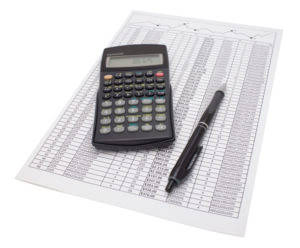
The rule for the validity of checks issued by the state government can vary according to the state legislature in America. In the United States, each state has laws about unclaimed property, which includes checks that have yet to be cashed within a certain time. Businesses must give away unclaimed property after a specific period, including uncashed checks, to contractors, vendors, employees, and stockholders. If a personal or business check is more than six law firm chart of accounts months old, it’s considered stale. However, that doesn’t automatically make it worthless, bad, or unacceptable to your bank.
Can I deposit or cash an old check?
It prevents the other business owner who is on the client-side of the table from cashing old and new checks, thereby maintaining transparency in the business. And, if the cheque doesn’t go through because you have insufficient funds, you might have to pay extra interest or a chargeback fee. It might be worth checking with your bank or financial institution to get a better sense as to the fees you could get charged. As businesses have to abide by the unclaimed property laws, any checks that have been outstanding for a long time must be remitted to the state as unclaimed property. As such, there is no incentive to wish for an outstanding check to permanently never be cashed as the payment is subsequently owed to the government for holding.
- If you forgot to deposit a check and it’s been more than six months since you received it, it might be considered stale.
- And sometimes you might need to write a cheque to or receive one from a vendor for payment.
- There are instances where you may need to write or receive a check for transactions.
- Yes, uncashed checks are considered income if you received documentation, such as W-2 and 1099 forms, that includes them.
- For example, IRS.gov indicates that a taxpayer should contact the IRS directly to initiate a trace before the replacement check can be reissued.
- A bank or financial institution is required to cash certified cheques and cashiers cheques even if they’re more than six months old.
Put Beneficiary on Sole Proprietor Checking?
Imagine a check as a perishable item with a shelf life of six months. If you miss this window, the bank won’t accept it, and you won’t get the money in your account. Cash or deposit the check within the first month to prevent any hassle or loss. The six-month rule usually applies to personal and business checks, including payroll ones. Outstanding checks are checks that have been issued but not yet presented for payment or cleared by the bank. They represent pending transactions where the funds have not yet been deducted from the issuer’s account.
Putting a stale-dated check policy in place

Uncashed checks that are outstanding for over six months are considered stale. If you have a stale check, it’s best to contact the person or business that issued it, if possible, to see if they can provide a replacement. Failing that, check with your bank and the issuing bank to see what their policies are for stale checks.

If you have a stale check (one stale dated checks meaning made out to you over six months ago), one option would be to contact the check’s issuer. They may be able to stop payment on the original check and reissue the check. If you’re not able to contact the original issuer or they are not willing to reissue the check, ask your bank and the issuing bank if the check can still be deposited. Generally, a “stale check” (also called a “stale-dated check”) is an uncashed check that’s more than six months old.

- You can try and deposit or cash it, but you risk the check being rejected by your bank or possibly returned from the issuing bank.
- Plus, it will help make sure that if a cheque is stale-dated you will have enough funds to cover it.
- If possible, try to go to the branch where the payor’s account is located, as they may have a banking relationship with the person or business that wrote the check.
- ✝ To check the rates and terms you may qualify for, SoFi conducts a soft credit pull that will not affect your credit score.
State government checks usually stay valid for six months to a net sales year, depending on the state. If a check remains outstanding for an extended period, it may become stale-dated, and the bank may refuse to honor it. The payee should contact the issuer to request a new check if this occurs. A check is a financial instrument that authorizes a bank to transfer funds from the payor’s account to the payee’s account. When the bank receives the full amount requested, it deposits it into the payee’s account. Yes, uncashed checks are considered income if you received documentation, such as W-2 and 1099 forms, that includes them.
- With a stop payment notice, the bank employee who is responsible for handling your accounting transactions ensures that the check becomes void.
- Stop payments are an essential factor as they highlight why bookkeeping is necessary for the success of your business.
- With a stale-dated check (meaning one that was issued more than six months ago), generally it is not illegal to deposit it, as long as you are not doing so with fraudulent intent.
- As a small business owner, you can use accounting software to manage your payment methods.
- Checks can become stale or outdated after a certain amount of time has passed.
- If a person wishes to cash a stale check at the issuing bank, then they would need to get approval from that bank before presenting the stale check.
- The only exception to stale-dating may be a certified check, which must be honored, even after 180 days.
Ruled that banks can retrieve funds after the issuer’s requested void period unless that person specifically instructed the bank not to honor the check after that time frame. Specifically, any person who is authorized to draw on an account can ask their bank to flag the account to stop the payment of the outstanding check. A stop-payment order is designed to stop the check from being processed and prevent the withdrawal of funds from the account to pay the check. In either case, banks are under no obligation to accept a check once it is deemed stale.
To protect you from someone depositing a cheque without your permission, include a note that states “for deposit only to the account of payee”. Not only can cheques be easy to lose, but one small error here or there can increase the chances of a cheque become stale-dated. You might have to issue a new cheque if that happens which can increase the time it takes for the receiver to deposit it. The biggest difference is that when you issue a cashier’s cheque, your bank is going to take funds from the purchaser. And since the bank is going to receive the funds upfront there’s no worry about receiving and dealing with a bad cheque. Almost every state requires a business to perform due diligence by contacting the owner of the unclaimed property.
